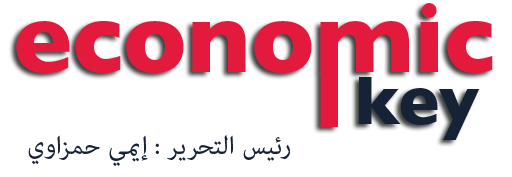Egypt’s Water Minister Presents Comprehensive Water Strategy at Joint Business Council Seminar

The Egyptian-Canadian Business Council (CEBC) and the Egyptian Council for International Cooperation (ECIC) hosted a seminar called “Water Challenges in Egypt: Causes and Solutions.” The event brought together important leaders from both the public and private sectors.
Engineer Moataz Raslan, Chairman of the CEBC, opened the seminar by stressing that “water is an existential issue and a cornerstone of development, as well as the foundation of a people’s present and future.” He cited an international report stating that about 50% of the world’s population, or roughly 4 billion people, face water scarcity for at least one month each year. He explained that climate change and rapid population growth make this global threat even worse.
Raslan also highlighted the serious situation in Egypt, where the annual share of Nile River water, 55.5 billion cubic meters, has stayed the same for decades. In contrast, the population has grown by about 25 million in the last ten years. This has reduced the per capita water share to 500 cubic meters. This amount is classified as “absolute water scarcity.” He mentioned that the Grand Ethiopian Renaissance Dam (GERD) is “the most prominent challenge” Egypt currently faces.
Hani Sewilam, the Minister of Water Resources and Irrigation, gave a presentation called “The Ministry’s Efforts to Achieve Water Security.” He outlined Egypt’s plan to address water challenges. He mentioned that the country aims to turn these difficulties into valuable investment opportunities.
Dr. Sewilam remarked, “The main focus of the Ministry of Water Resources and Irrigation’s strategy to address water challenges is to change difficulties into promising investment opportunities through a complete vision based on several key pillars.” He explained the ministry’s strategy:
Treatment and Desalination: The plan includes expanding the reuse of agricultural wastewater through major projects such as New Delta, Bahr Al-Baqar, and Al-Mahsama. Desalination is viewed as an important solution to problems related to water and food security.
Smart Management: We use modern technology for rain forecasting, satellite images for crop inventory, and drones to monitor groundwater wells.
Digital Transformation:This involves digitizing data for canals, drains, and water facilities, as well as creating databases and digital applications to assist farmers, with 27 different applications already designed.
Water Infrastructure Rehabilitation:Canals and facilities are being developed and upgraded with eco-friendly materials. Projects like the Assiut Barrage (Qanater Dairut) are in progress, and the monitoring and operation system at the High Dam is being modernized.
Confronting Climate Change: The ministry is starting projects to protect coastlines and more than 1,600 structures from flooding. It is also increasing the use of solar energy.
Governance and Legislative Development: This involves encouraging farmers and water user groups to help manage the water system. It also includes creating laws to protect resources from encroachment.
Nile River Regulation: Campaigns are in place to remove encroachments using the latest surveying methods and to regulate activities along the riverbanks.
Awareness and Capacity Building: The ministry is developing human resources through training and skills development. It has also started community awareness campaigns like “Ala El Qad” to encourage water conservation.
International Efforts: Egypt is leading initiatives to raise the profile of water on the international climate and development agenda through Cairo Water Weeks, climate conferences, and the AWARe initiative to support African countries.
The Senate’s Agriculture and Irrigation Committee Chairman, Engineer Abdel Salam El-Gabaly, took part in the conversation and offered ideas from both the legislative and executive branches. He underlined the necessity of finding answers to these problems and underlined how vital water is to life. He emphasized the political leadership of Egypt’s endeavors to establish new water policies. This entails creating irrigation systems to lower consumption, constructing water treatment facilities, and reusing agricultural wastewater through national programs. According to him, Egypt intends to double its current agricultural wastewater reuse rate from 21 billion cubic meters to 26 billion cubic meters.
In conclusion, the event highlighted the important role of the private sector in supporting state strategies and pointed out the need to strengthen public-private partnerships to achieve water security in Egypt.
About the Egyptian-Canadian Business Council and the Egyptian Council for International Cooperation:
The Egyptian-Canadian Business Council (CEBC) is a leading organization that supports and develops commercial and investment relations between Egypt and Canada. It organizes events and conferences that benefit the national economy and aims to promote discussion on important economic and investment topics.
The Egyptian Council for International Cooperation (ECIC) is a significant organization that supports and develops Egypt’s international economic relations. It promotes dialogue on key economic and investment issues by organizing events that serve the national economy.



